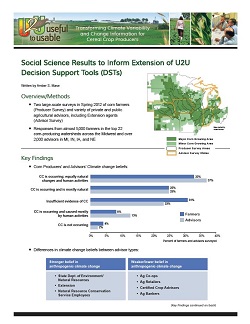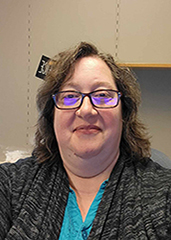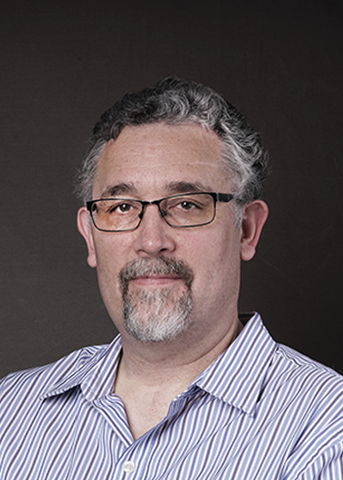Current Graduate Students
Graduate students in FNR train alongside award-winning faculty and staff to become the next generation of professionals in the natural resource sciences. According to articles in the Chronicle of Higher Education and other literature including Science, broadening experiences in addition to research should be components of graduate education so that students may realize the breadth of potential professional opportunities and diverse interactions. FNR, consistent with the mission of a land-grant institution, strives to build programs that help graduate students realize diverse professional objectives. Graduate Students are the backbone of FNR by supporting all aspects of the land-grant missions of Discovery, Learning, and Engagement. FNR Graduate Students have the unique opportunity to create a Plan of Study that is tailored to their specific learning and professional goals. Detailed program requirements are included in the FNR Graduate Student Handbook found in the ‘Resources’ drop down below.
- (482) How to enroll and modify Masters or PhD research credits - YouTube
- Research Expectations Form
- Proposal Evaluation Form
- Center for Instruction Excellence
- College Teaching Development Program :
The Certificate of Foundation in College Teaching
The Certificate of Practice in College Teaching
MacGowan and Rod Williams, Department of Forestry and Natural Resources, Purdue University, West Lafayette, IN.
This course provides an opportunity for students to develop and implement extension activities based on their research interests. The course will focus on important natural resources issues, identify common target audiences, provide examples of extension programming, discuss outputs developed from various extension programs, and outline metrics used to evaluate program impact.
Current Syllabus.
For more information about the Theory & Application of Natural Resource Extension Programming course or our graduate student extension program, contact:
Brian J. MacGowan, Extension Coordinator and Extension Wildlife Specialist, (765) 647-3538, macgowan@purdue.edu.
Rod N. Williams, Engagement Faculty Fellow and Associate Professor of Wildlife, (765) 494-3568, rodw@purdue.edu.
Student Deliverables
Examples of deliverables produced by students who have completed their degree are listed below. Work in production by the more than 80 current FNR graduate students are not included.
Complete list of FNR Graduate Student Deliverables.
- Amber Saylor Mase (PhD 2014). 2013. Social Science Results to Inform Extension of U2U Decision Support Tools (DSTs). (Advisor: Linda Prokopy)
- Miller, Amy
 (MS 2014). Northeast and Southern Nursery Association Meeting Presentation, Holiday Inn City Center, Lafayette, Indiana, July 22-25, 2013. (Advisor: Doug Jacobs)
(MS 2014). Northeast and Southern Nursery Association Meeting Presentation, Holiday Inn City Center, Lafayette, Indiana, July 22-25, 2013. (Advisor: Doug Jacobs) - Blythe, Rita (MS 2014). Indiana's woodrats get a boost through captive breeding. The Nature Conservancy in Indiana, Spring 2013 Newsletter. (Advisor: Rob Swihart)
- Rueda Krauss, O. (MS 2014) and C. H. Michler. 2013. First stages of an Acacia koa tree selection program at HARC A (DHHL). Hawaii Forest Industry Association, Hilo, HI. (Advisor: Doug Jacobs)
- Herold, Jamie.M. (MS 2013). (In Press). Integrated Vegetation Management for INDOT Roadsides. Joint Transportation Research Program, Indiana Department of Transportation and Purdue University; West Lafayette, Indiana. (Advisors: Zachary Lowe)
- Shields, Josh (PhD 2013). Ecological and economic effects of invasives. Presentation at the Invasive Species Training and Ecological Impacts workshop, October 5, 2011, Martell Forest, West Lafayette, Indiana. (Advisor: Mike Jenkins)
- Wang, Ying (PhD 2013) and Pijut, P.M. 2011. Flowering control in fine hardwoods. Center for Advanced Forestry Systems Industrial Advisory Board Meeting, Seattle, Washington, June 14-16, 2011. (Advisor: Paula Pijut)
FNR Graduate Student Feedback on the Policy
Eighty-one percent of students thought the extension requirement contributed to their ability to communicate technical information to a diverse array of audiences.
What parts of the extension requirement do students find most beneficial?
- The diversity of publications related to extension in addition to research will make my resume stand out more. I can reach a broader audience and highlight work done at FNR.
- Knowing that my research is now in the hands of managers who can utilize the information was the most fulfilling part of the process.
- Providing workshops for the deliverables requirement was most beneficial because it greatly improved my public speaking skills.
- It made me think about applications of what I'm doing and how it can benefit the public.
- Doing the project was cool and helped me put my project in a different perspective; it helped me relate to folks outside of the science community.
- It forced me to start thinking about how to write and present my research to a broad audience.
For more resources view: Graduate Extension Student Resources.
Resources
The Graduate Student Council (GSC) purpose is to promote coordination and cooperation among the FNR graduate student body as well as share concerns with department leadership.
Graduate Student Council Officers
- President: Rachel Brent
- Vice President: Olivia Biasetti
- Secretary: Erin Driehaus
- Treasurer: Tawn Speetjens
- Ombudsperson: Ellie Joll
- Social Chair: Matthew Salima
- Community Engagement Representative: Stephanie Willsey
- College of Ag Representative: Natalie Allen
- Purdue Graduate Student Government Rep: Fritz Saint-Preux
- Graduate Program Administration Specialist & GSC Faculty Advisor: Patti Foster
The Graduate School governs admissions, advisory committee structure, course credit, plan of study and registration requirements. Graduate School forms (e.g., Plan of Study, Form 8) can be accessed through myPurdue.

Patti Foster, Graduate Program Administration Specialist
Phone: 765.496.0439
Email: foster43@purdue.edu
FORS 205A
195 Marsteller Street
West Lafayette, IN 47907

Zhao Ma, Professor & Graduate Committee Co-Chair
Phone: 765.494.1790
Email: zhaoma@purdue.edu
FORS 111
195 Marsteller Street
West Lafayette, IN 47907

Pat Zollner, Professor & Graduate Committee Co-Chair
Phone: 765.496.9495
Email: pzollner@purdue.edu
FORS 307
195 Marsteller Street
West Lafayette, IN 47907
